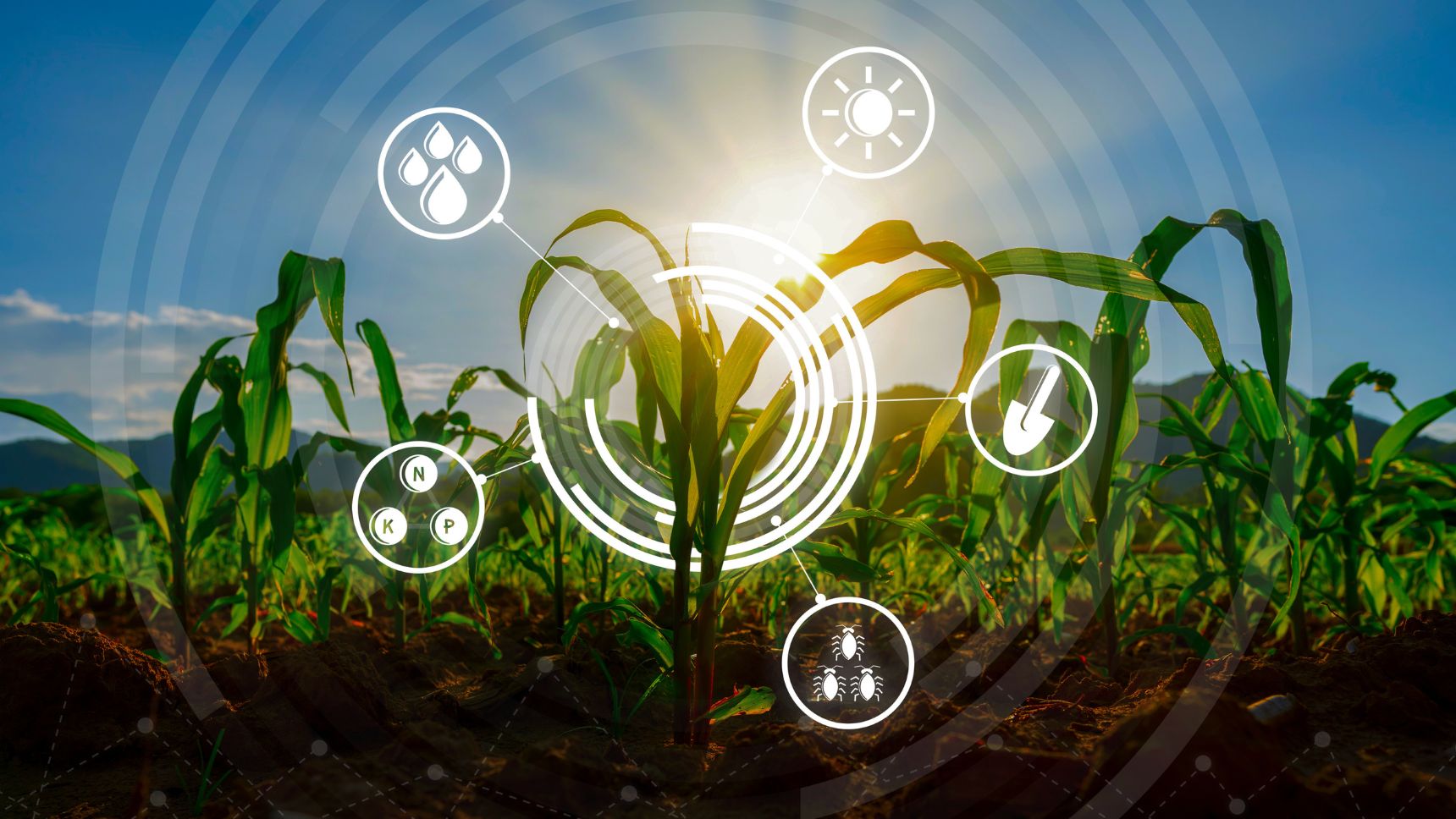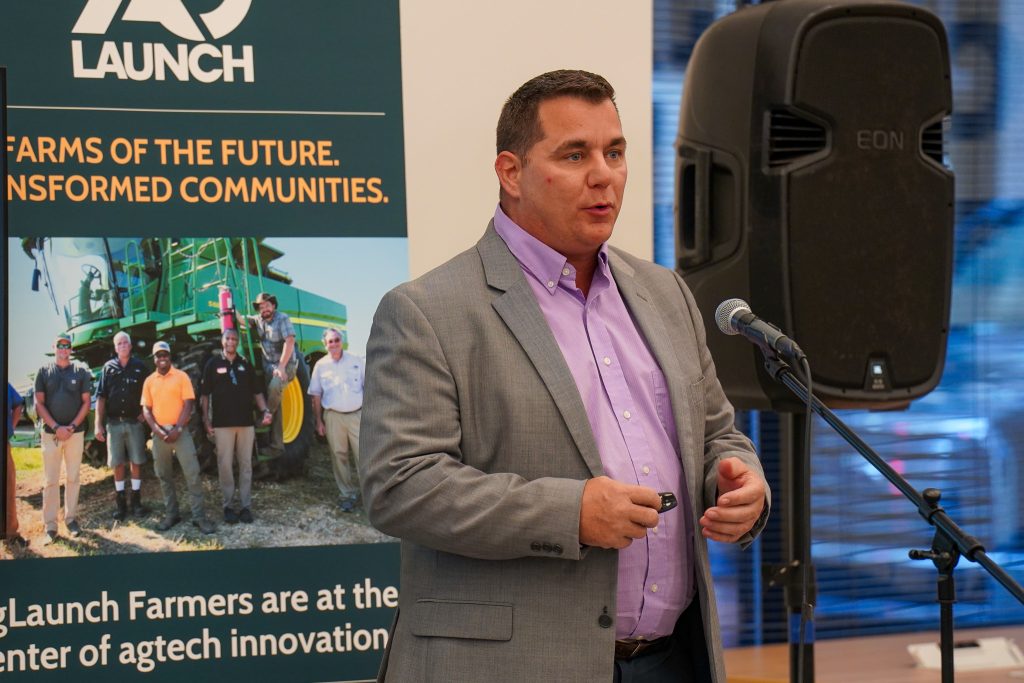
Agri-Smart Analytics could bond traditional farms with smart farm technologies
Nattrass and his team at Tennessee Tech will be developing a demonstration smart farm system that incorporates blockchain technology for a data storage system.
The traditional family farmers who wake up with the sun, check the levels in the rain bucket, and spray fields based on instinct are becoming less common. As the world moves closer to the Innovation Age, more farmers are hopping on the Smart Farm bandwagon. Local voices in the agricultural space, such as Dr. Michael Nattrass, an Assistant Professor of Agronomy & Soils at Tennessee Technological University (TTU), are helping lead that charge.
Smart Farms are set up with sensors in various capacities that provide farmers with real-time insight into how environmental conditions impact crop growth and health.

“There’s nothing wrong with the traditional method. However, new technologies lend a helping hand by making it more efficient, accurate, and profitable not only for current farmers but also for future generations.” Nattrass said. “For example, many experienced farmers may intuitively know crops need water from checking a thermometer or rain gauge. They compare these factors to determine how much they should water the fields. These are just a few of the routine daily tasks that farmers must do. The younger generation of farmers might lack the experience or intuition to overcome the challenge of changing climatic conditions.”
This is where smart farm sensors could be useful in bridging that experience gap. Smart farm sensors collect and analyze large amounts of data (known as Big Data) to provide data-driven recommendations, saving farmers time and improving production efficiency.
“However, Big Data can be overwhelming, so we utilize machine learning models to make sense of everything. For example, smart farm sensors can measure the weather situation in real-time and provide insight about how temperature, humidity, and sunlight impact water loss under current conditions,” Nattrass explained.
An example recommendation might be ‘If 0.5 inches of rainfall is not received within 2 days, you can expect a 2% yield reduction’. This provides the farmer with information to make a management decision about irrigation.
“Ultimately, the decision is still up to the farmer, not the technology,” Nattrass ensured.
In regards to Climate Smart Agriculture, smart farm sensors can also help log and collect information on carbon emissions, how much pesticide was applied, soil moisture levels, fertilizer amounts, and anything else farmers may need to track for claiming incentives for meeting sustainable development goals.
“This is going to save farmers money in the long run because they can apply just the right amount of pesticide, fertilizer, or water to optimize yield. Ideally, saving money on these inputs, which could increase the profit margins,” Nattrass said.
Although these sensors can collect a lot of data, there is currently no simple and accessible platform for farmers, co-ops, environmental agencies (i.e., Natural Resources Conservation Service (NRCS), and educational institutions to track and utilize the data.
That’s where Nattrass’ solution, Agri-Smart Analytics, comes in. He is working alongside faculty and students at TTU to create software solutions that will allow farmers nationally to store and share their data using blockchain technologies.
Blockchain technology is an advanced database mechanism that allows transparent information sharing within a decentralized network, ensuring that farmers own their data. A blockchain database stores and verifies the data in blocks that are linked together in a chain. Any change to one of the blocks must be verified or else the chain is broken. This ensures the data is accurate, secure, protected, and unchangeable.
In short, the data is decentralized, meaning farmers own their data and there are privacy mechanisms in place to protect their identity.
Nattrass said he is passionate about bringing a project of this nature to Tennessee Tech students.
Our students are going to be the ones in these jobs, working with producers, and deploying these technologies,” he said. “We need to be training our students in Smart Farm technology, and this is a great way to do that.”
Smart Farm technology is already in action at many farms across the state; however, Nattrass acknowledges a large gap between the farmers who are harnessing the latest and greatest agri-tech solutions and those who continue to rely on instinct and experience.
“One of the underlying main goals is to introduce experienced producers to smart farm technologies and connect them with the incoming generation to pass along their insights to secure food for our future. They have a wealth of knowledge, and we cannot overlook that. There is no substitute for experience. As the torch gets passed, the newer generations will seek opportunities to apply technology to help with daily tasks, such as monitoring temperature and rainfall. We want to help install systems that refine production systems to minimize inputs and optimize yield thereby enhancing environmental and economic sustainability,” Nattrass said.
Over the next few semesters, Nattrass and his team at Tennessee Tech will be developing a demonstration smart farm system that incorporates blockchain technology for the data storage system. He hopes the secure database can be accessible for advocacy organizations, farmers, environmental agencies, and students to learn from.
“With this blockchain system, it is possible to report the data to agencies such as the Natural Resources Conservation Service (NRCS), without having a field agent make a trip to your property to access the data that you’ve collected at the farm,” Nattrass said. “We designed it with farmer privacy and preference in mind.”
While Nattrass has a desire for the invention to succeed and serve the greater good, he is more passionate about helping the students learn something new about the industry, and about themselves.
“This younger generation doesn’t have the quantity of experiences, yet. So really, what they need is an advisor who is patient enough to show them, allow them to grow on their own, and ask questions,” he said. Nattrass continued by saying that watching his students grow through the challenges is one of his favorite parts of leading an effort of this nature.

teknovation.biz first watched Nattrass unveil his start-up idea for Agri-Smart Analytics at the AgLaunch “Cultivate Appalachia Bootcamp”, where he represented the Cookeville region. (Read more in this teknovation.biz article).
“I do believe that this is going to be the future. It is already here. Smart farms, artificial intelligence, machine learning, and blockchain are the tools that we will use in the future. My goal is to ensure students are capable, confident, and competitive when entering the job market,” Nattrass said.
Like what you've read?
Forward to a friend!

